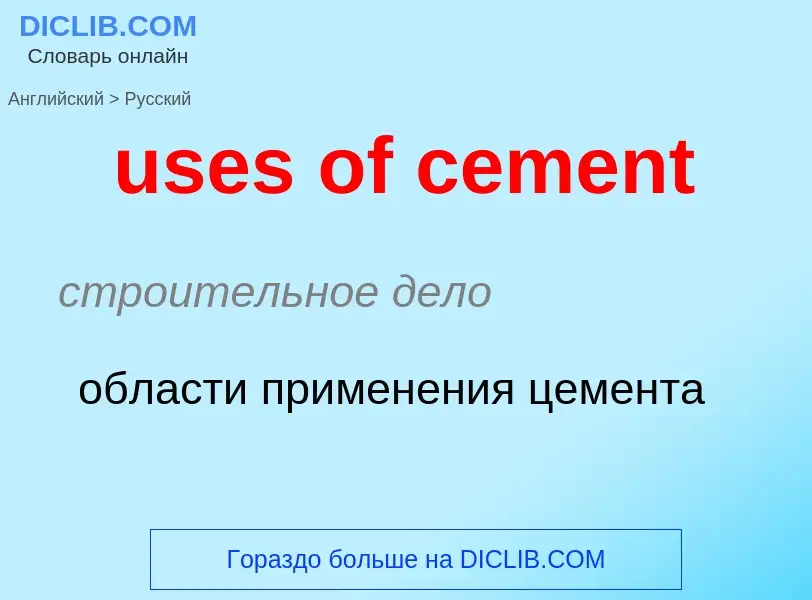Перевод и анализ слов искусственным интеллектом ChatGPT
На этой странице Вы можете получить подробный анализ слова или словосочетания, произведенный с помощью лучшей на сегодняшний день технологии искусственного интеллекта:
- как употребляется слово
- частота употребления
- используется оно чаще в устной или письменной речи
- варианты перевода слова
- примеры употребления (несколько фраз с переводом)
- этимология
uses of cement - перевод на русский
строительное дело
области применения цемента
Определение
.
Википедия
The Statute of Uses (27 Hen 8 c 10 — enacted in 1536) was an Act of the Parliament of England that restricted the application of uses in English property law. The Statute ended the practice of creating uses in real property by changing the purely equitable title of beneficiaries of a use into absolute ownership with the right of seisin (possession).
The Statute was conceived by Henry VIII of England as a way to rectify his financial problems by simplifying the law of uses, which moved land outside the royal tax revenue (ie., through royal fees called feudal incidents), traditionally imposed through seisin. At the time, land could not be passed by a will, and when it devolved to the heir upon death was subject to taxes. Hence, the practice evolved of landowners creating a use of the land to enable it to pass to someone other than their legal heir upon their death, or simply to try and reduce the incidence of taxation.
The King's initial attempt in 1529, which would have removed uses almost completely, were stymied in Parliament by members of the House of Commons, many of whom were landowners (who would lose money) and lawyers (who benefited in fees from the confusing law on uses). Academics disagree on how the Commons were brought around, but an eventual set of bills introduced in 1535 was passed by both the Lords and Commons in 1536.
The Statute invalidated all uses that did not impose an active duty on trustees, with beneficiaries of the use being held as the legal owners of the land, meaning they had to pay tax. The Statute partially led to the Pilgrimage of Grace, and more importantly the development of trusts, but academics disagree as to its effectiveness. While most agree that it was important, with Eric Ives writing that "the effect which its provisions had upon the development of English land law was revolutionary", some say that by allowing uses and devises in certain areas it not only failed to remove the fraudulent element from land law but actively encouraged it.
The Statute of Uses is still valid law in some provinces of Canada.

![[[Henry VIII of England]], who devised the Statute as a way of alleviating his financial problems. [[Henry VIII of England]], who devised the Statute as a way of alleviating his financial problems.](https://commons.wikimedia.org/wiki/Special:FilePath/Enrique VIII de Inglaterra, por Hans Holbein el Joven.jpg?width=200)


